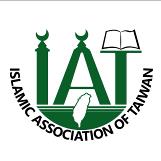
|
The Dirty Woman 不潔的女人 A woman came to Prophet Muhammed, asking for purification. 有個女人來到先知穆罕默德這裡,想得到淨化。 The Prophet asked, “For what are you asking?” 先知問:「妳為何要得到淨化?」 She replied in a low voice, “I’m sinful. I’ve committed adultery.” 她低聲回答:「我有罪,我犯了姦淫。」 “Do you know the punishment for this?” asked the Prophet with a concerned look. 「妳知道這個罪的刑罰嗎?」先知帶著關切的表情問道。 “Yes, I do. The punishment of adultery for a married Muslim is to be stoned to death, and slashed a hundred times for a single one.” replied the woman, calmly. 「是的,我知道。已婚穆斯林犯姦淫罪要被石頭砸死,未婚的要被鞭打一百下。」女人平靜地回答。 “Are you married?” asked the Prophet with a soft voice. 「妳結婚了嗎?」先知輕聲地問。 “Yes, I am. I’ve cheated my husband, and now I’m asking for the purification from Allah.” replied she, with tears in her eyes. 「是的,我結婚了,我欺騙了我的丈夫,現在我想得到 阿拉的淨化。」她眼中含著淚水回答。 Pausing a moment, the Prophet asked, “Is there a seed conceived in your womb? So far as you know.” 停了一會兒之後,先知問:「就妳所知,妳現在是否有孕在身?」 “Yes, I think I’m two months pregnant.” She lowered down her glance. 「是的,我想我已經懷孕二個月了。」她低著頭回答。 “In that case, come back to me after you deliver the baby. The baby is innocent.” said the Prophet. 「既然如此,妳生完小孩後再回來找我,小孩是無辜的。」先知說。 The woman left without receiving any punishment or rebuke. Neither her name nor her contact was kept by the Prophet. 這個女人沒有受到任何懲罰或責備就離開了,先知也沒有問她叫什麼名字或住在哪裡。 Seven months later, appeared the woman again in front of the Prophet. 七個月後,這個女人再次出現在先知面前。 “I have delivered the baby yesterday, and now I come back for the purification.” said the woman. 「我昨天把小孩生下來了,現在回來請求得到淨化。」女人說。 “Where is your baby?” asked the Prophet. 「妳的小孩在哪裡?」先知問。 “I left the baby with my husband at home.” 「我把小孩留在家裡給我先生照顧。」 “Go back and breastfeed the baby for two years. A baby needs a mother.” 「回去幫妳的小孩餵兩年母乳,嬰兒需要母親。」 Again, the woman left without receiving any punishment or rebuke. Neither her name nor her contact was kept by the Prophet. 再一次地,這個女人沒有受到任何懲罰或責備就離開了,先知也沒有問她叫什麼名字或住在哪裡。 Two years later, came the woman again to the Prophet. 二年後,這個女人再次來到先知這裡。 “I have breastfed my child for two years. Now I’m here for purifying my sins.” 「我已經幫我的小孩餵母乳滿兩年了,現在我來這裡淨化我的罪。」 “Where is your child?” asked the Prophet. 「妳的小孩在哪裡?」先知問。 “The child is in good hands.” said she in a peaceful tone with a smile. 「小孩已妥善安置。」她帶著微笑、以祥和的口吻說道。 “Ok, so now you shall be purified.” said the Prophet. 「好的,現在妳將得到淨化。」先知說。 After the punishment was done, on the ground was her body with blood and dirt. The Prophet asked his companions to arrange a funeral prayer on her body. At that moment, a companion of the Prophet, Umar Ibn Al Khattab─ later the second Khalifa, asked with surprise, “Pray on a sinful dirty woman?” 在接受完刑罰後,她滿身血漬與汙泥地躺在地上。先知要他的友伴們準備為她舉行殯禮,此時先知的一位友伴──也就是後來的第二任哈里發歐馬伊本哈塔布──帶著驚訝的眼神問道:「為一個有罪且不潔的女人禮拜?」 Immediately, the Prophet rebuked him, “Her repenting was equal to the repent of seventy companions like you. No one is cleaner than her in Allah’s eyes.” 先知立即斥責他:「她的懺悔已等同像你這樣七十個友伴加起來的懺悔,在 阿拉眼裡,沒有人比她更潔淨。」 ****************************************************************************************************************** In all the Islamic history during the reins of Prophet Muhammed as well as the four Khalifas, this was one out of the only two cases, both married and single, that the punishment of adultery was ever practiced. (The other case was a married man who turned himself in, but he couldn’t bear the pains and ran away in the middle of the punishment.) No matter married or single the Muslim is, the accusation of adultery should be supported by at least four Muslim witnesses. If one of the witnesses shows a little bit of hesitation or uncertainty in his testimony or he couldn’t pass the interrogation of the judge, four of them shall receive severe punishment for false accusation. So it’s almost impossible for this kind of case to be established unless the person involved turns himself/herself in to the judge of Islamic community. 在先知穆罕默德以及四任哈里發統治的整個伊斯蘭歷史中,無論已婚或未婚,姦淫罪的刑罰只被執行過二次,這是其中一次(另一次是一名已婚男性自首,但他無法忍受疼痛而在受刑到一半時逃走)。無論這個穆斯林已婚或未婚,對其姦淫罪的指控都必須至少有四位穆斯林證人作證,倘若其中一位證人作證時露出一點遲疑或不確定、或無法通過法官的審訊,則這四位證人都會因不實指控而受到嚴厲制裁。因此,除非當事人主動向伊斯蘭社會的法官自首,否則此類案件幾乎不可能成立。 The prophet hoped she never came back to ask for purification, simply because she could ask for forgiveness in different easier ways. However, she insisted on making sure that she was forgiven, which was why she chose the hardest way. 其實先知希望她不要再回來請求淨化,因為她可以用不同且比較容易的方式請求寬恕,然而,她堅持要確定自己已得到寬恕,所以才選擇這種最困難的方式。 The law of Allah may look cruel, yet it serves more as warning than execution. The honor killing executed by Muslims nowadays in some countries thus brings forth this question: How far are they from the real Islam? 阿拉的律法看起來或許殘酷,但它警告的意味遠遠勝過刑罰的執行。當今某些國家的穆斯林所執行的名譽殺人讓我們不禁問道:他們這些人與真實的伊斯蘭有多麼遙遠的距離? A real Muslim takes this life as the cause for the Hereafter. Compared to the eternal happiness in Paradise, this life is transient even if it lasts for more than a hundred years. This is why that “dirty woman” insisted on receiving the purification even after almost three years, during which she could escape and keep her child with her without being caught. From the very beginning, she could keep this secret without being discovered. But she knew Allah was watching, and she cared about Him. In fact, she could choose easier ways, as Allah says in Chapter 4 Verse 48, “Indeed, Allah does not forgive association with Him, but He forgives what is less than that for whom He wills. And he who associates others with Allah has certainly fabricated a tremendous sin.” But she wanted to be sure that she was forgiven before she died, which made her choose the harder way which is to admit and to receive the punishment. 真正的穆斯林將此生視為後世的根源;與天堂永恆的幸福相較,此生即使超過一百年也極其短暫。此乃為何那位「不潔的女人」即使過了將近三年的時間,仍堅持接受淨化;其實,那三年她大可帶著孩子遠走高飛而不被抓到。從一開始,她就可守住這個祕密而不被發現,但她知道 阿拉在看著她,而且她真的很在乎 祂。事實上,她可以選擇比較容易的方式,因為 阿拉在《古蘭經》第4章第48節說:「 阿拉確實不饒恕以物配主之罪,但 祂會依自己的意欲赦免比它輕微的罪。以物配主者確實已犯了巨大的罪。」但她想確定自己在死前已得到饒恕,才選擇這種自首且接受刑罰的最困難方式。 Through the whole story, the man who committed adultery with this woman never showed up. He didn’t turn himself in and no one was trying to check him out for execution. He might have chosen to be punished in the Hereafter, which is more serious according to Islam. This is why death penalty “or what is equal” is considered purification, which brings real life to the person. However, he might have repented in other ways. Only Allah knows. 綜觀整個故事,與這個女人通姦的男子從未現身,他並未自首,而且也沒有人試圖把他找出來受刑,他或許選擇在後世受到懲罰,根據伊斯蘭,那是更嚴重的刑罰;此乃為何死刑或「同等之刑」被視為淨化,因為它為當事者帶來真正的生命。然而,他也或許以其他方式懺悔了,只有 阿拉知道。 The rules in Islam are never about punishment, revenge, hatred, or controlling others. Rules are put by Allah to guide us to perfection in this life before the Hereafter. 伊斯蘭的規則從來就不是為了懲罰、報復、仇恨或控制他人, 阿拉設下這些規定是為了引導我們在進入後世之前,先將此生過得圓滿。
|


|
Copyright © Islamic Association of Taiwan. All rights reserved . 台灣伊斯蘭協會 版權所有 |
